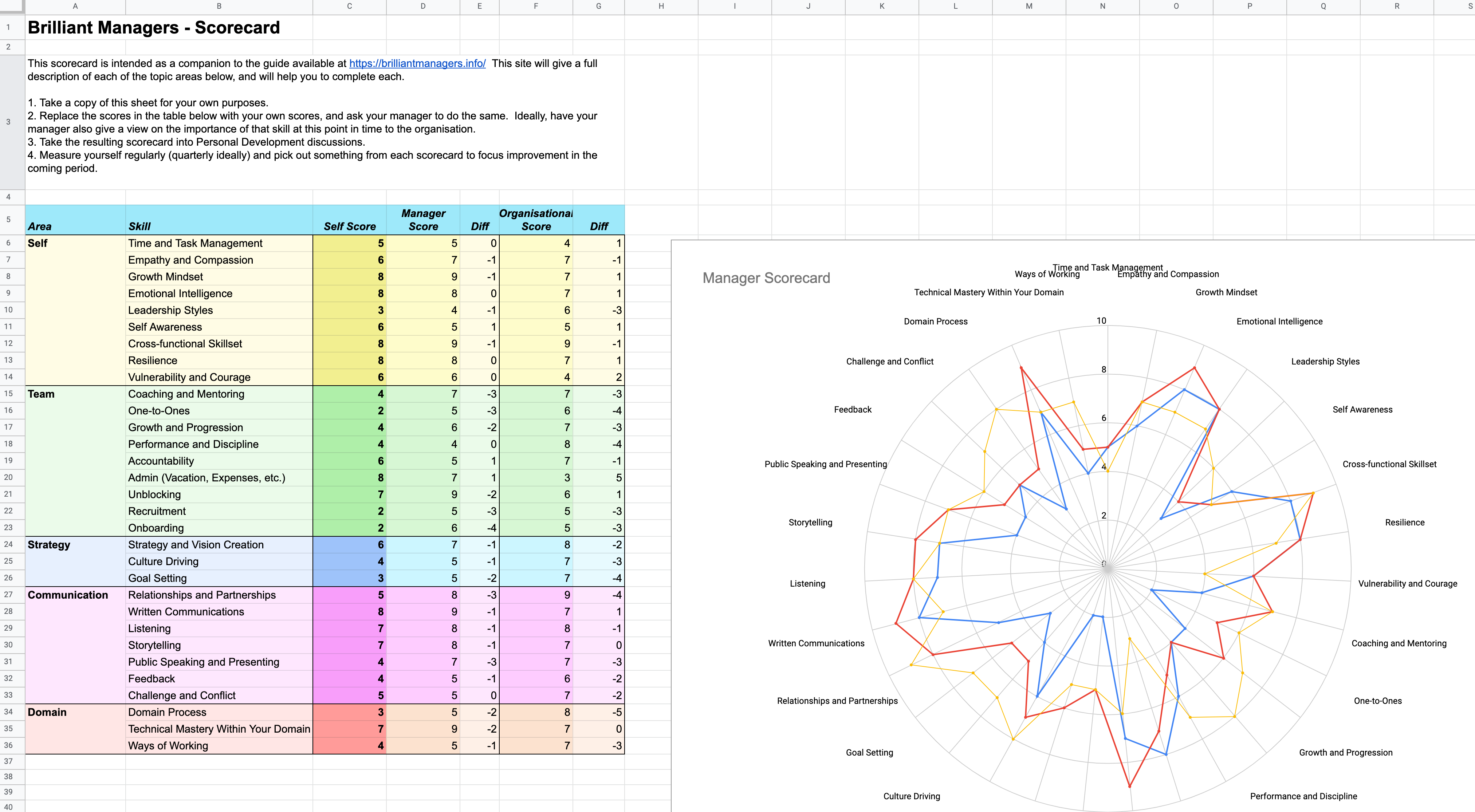Throughout the guide, you will start to understand each of the areas and the key measurements, how do you know how you are doing? How do you know what your focus areas are and what growth looks like?
Measure
The simple aim here is to get to a point where you have an understanding of your current state across all areas.
To complete your own manager scorecard, use the tool available on this site to record your own scores and have them lead into your own plans around Personal Development.
Self
Against all the key skills listed in the guide, the aim is to measure ourselves on a scale of 0-10.
- 0 = I have no skills or awareness of this area
- 10 = I am a recognised expert in this area, and I do not feel I could improve
Scoring - a fully completed scorecard
Below is an example of a scoring for a new manager, and this naturally feeds in to provide the graphs that are generated by the tool. The tool will handle all of this.

Some specific examples:
- If you feel that your empathy is incredibly strong, if people comment upon it, and you are known for being an empathetic person, you are likely to score yourself highly (8 or above).
- If you struggle with challenge and conflict, really don’t bring your voice to meetings when you have any opposing points, and go along with the status quo even when you do not agree, you are likely to score yourself low (3 or below)
- If you feel you ‘get by’ when it comes to strategy and vision creation, that you have perhaps engaged with it, but don’t feel confident that you could create a strong outcome yourself on this, you are likely to score yourself in the middle at around a 5 or 6.
Gather Views from Others
To get the most out of this exercise, you would also include other measurements - in particular:
- Current organisational and context requirements - it may be that in your current role, public speaking is not a requirement, or driving culture is not required as there is a well established culture within the org that is expected to be championed by all. In these situations, understanding those requirements that are local to this role will help you identify very specific gaps. This should be considered optional, and doesn’t preclude you measuring yourself effectively, but it can generate useful conversation if it is in place.
- Peer / Manager / Team Input - there are many barriers to self awareness - we often compare ourselves to others, but not always effectively. Traits such as imposter syndrome or dunning-kruger can often make self scoring a difficult operation. In most situations, taking extra data points from those we work most closely with - our managers, any peers, and our team - can be a significant gain in our understanding of self. Like the johari window, this scoring is best when viewed with the backdrop of others’ perceptions of us too.
On collection of all of the above data, you are ready to move forward to the discussion phase.